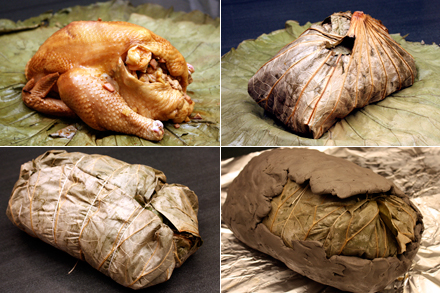In Chinese culture, the Lunar New Year, also known as Spring Festival, marks the end of the coldest days and welcomes spring, symbolizing new beginnings and fresh starts. Each year in the 12-year cycle is represented by a zodiac animal, with 2024 celebrating the Year of the Dragon. The dragon, a mythical creature revered in Chinese folklore and mythology, symbolizes power, strength, and good luck. Unlike the fire-breathing dragons of Western stories, Chinese dragons are benevolent beings associated with water, rainfall, and harvests. During the Year of the Dragon, certain foods take on greater importance due to their symbolic meanings and their names’ phonetic similarities to auspicious words in Chinese.

Beggar’s Chicken, a moist, flavorful chicken with an infusion of earthiness from the clay, creating a harmonious blend of textures and tastes (Photo: Red Cook)
Fish symbolizes abundance and prosperity. In the Year of the Dragon, it’s particularly significant as dragons are traditionally connected with water and seas. The typical preparation is to steam the fish whole, representing a good beginning and end in the coming year.
Chicken and duck representing fertility and family unity, these poultry dishes are often cooked with special herbs and spices, adding both flavor and auspiciousness to the New Year feast. A popular dish is “Beggar’s Chicken,” where the chicken is marinated, stuffed with herbs, and baked in clay, symbolizing hidden treasures in the coming year.
Dragon Fruit, with its dragon-inspired name, this fruit is believed to bring good luck and prosperity.
Dumplings resembling ancient Chinese gold ingots, dumplings symbolize wealth. It’s believed that eating dumplings during the Lunar New Year brings financial good fortune, a sentiment amplified in the Year of the Dragon








